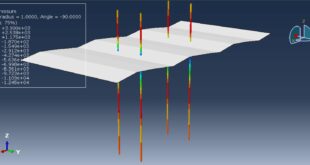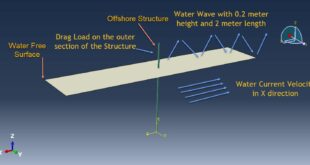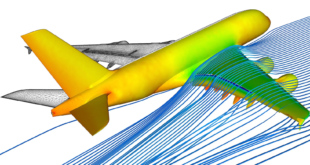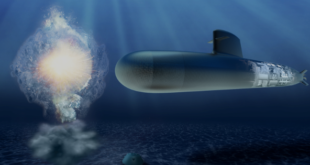In this tutorial. the Numerical simulation of Ultra-High-Performance Concrete (UHPC) under four points bending in Abaqus has been investigated. Although concrete is the most universally used material in building there are still some limitations to its use, such as low tensile strength and brittleness. Ultra-High Performance Concrete (UHPC), a cutting-edge concrete, may be able to overcome these concerns. UHPC possesses a compressive strength greater than 21.7 ksi (150 Mpa) and a flexural strength greater than 0.72 ksi (10 Mpa) at 28 days. The concept of UHPC was first developed by Richard and Cheyrezy and was produced in the early 1990s at Bouygues Laboratory in France. The concrete beam is modeled as a three-dimensional solid part. You can see a figure of the assembled parts at below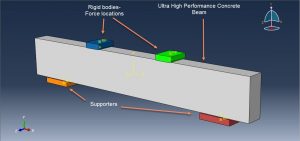
The simulation of UHPC material through commercial FE software allows for the study of the structures including UHPC. A three-dimensional FEM simulation is used to model the failure process. The CDP plasticity model is used for the concrete beam. The concrete material parameters used in this study are the modulus of elasticity (E), Poisson’s ratio (v), and the CDP parameters. In the CDP, for cracked concrete, a constant value for Poisson’s ratio is considered. The primary values of the CDP parameters include dilation angle (w), shape factor (Kc), stress ratio rb0/ rc0, eccentricity, and viscosity parameter. The general static step with some changes in the convergence model is used to obtain a good force-displacement diagram. The surface to surface contact with contact property between the concrete beam and rigid bodies is used. The fixed boundary condition is assigned to the two bottom rigid bodies and displacement as a boundary to the two top rigid bodies. The mesh should be fine to achieve good results
After the simulation all results such as stress, strain, displacement, and force-displacement diagram are obtainable. You can see some figures of the results below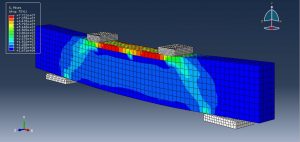
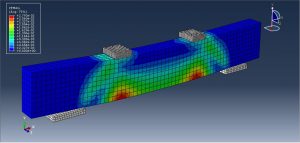
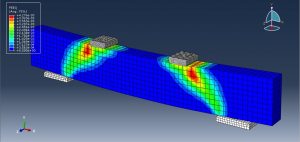
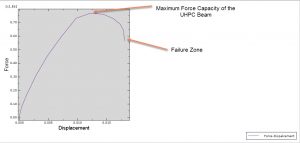
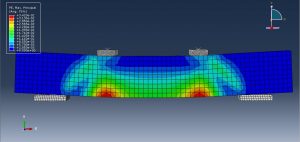
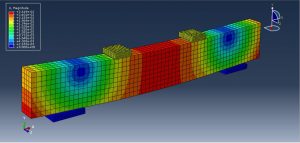
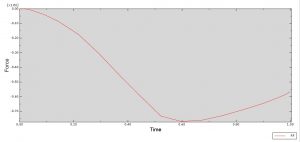
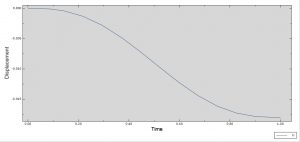
You can provide CAE ,INP,and English video files of this simulation here. The cost of these files is Twenty-Five Euros. you can click on the bellow bottom to beginning process
You can purchase the tutorial through a PayPal account, a Visa, or a Master card, just before payment,send me an email to this address: karampourp@gmail.com
 Abaqus tutorials Abaqus tutorials
Abaqus tutorials Abaqus tutorials
